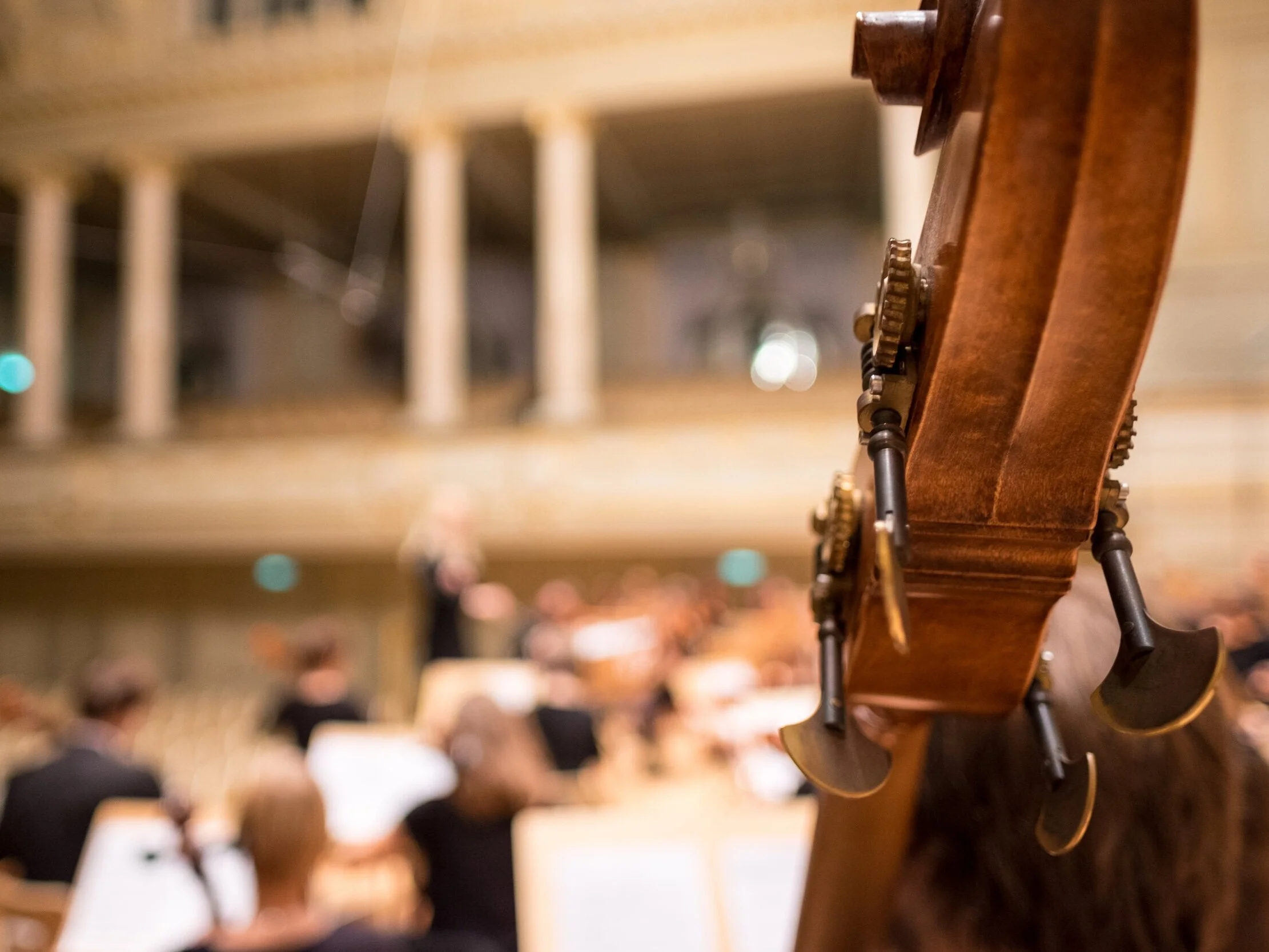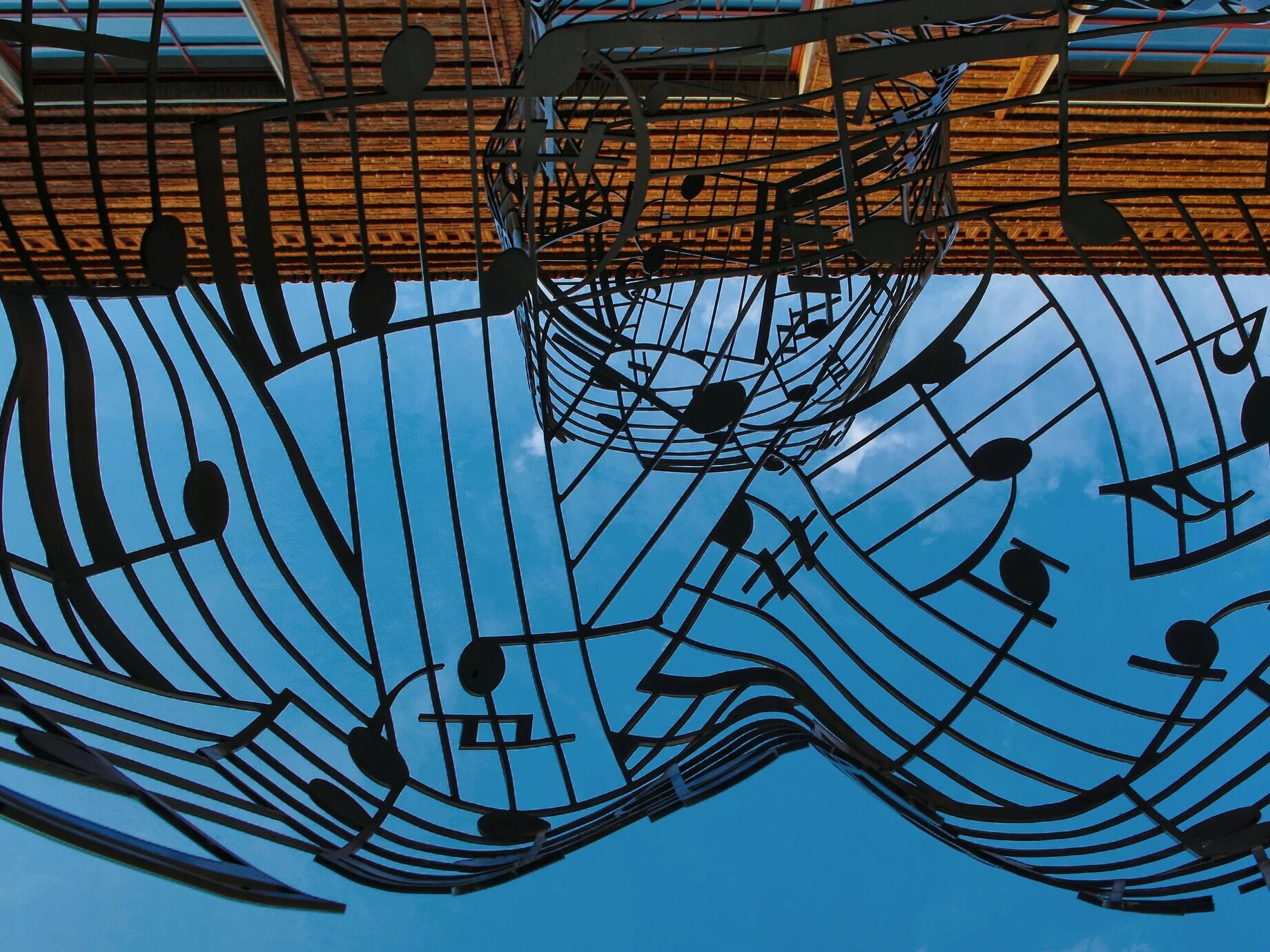Francisco Varela (Argentina)
Conductor and composer Francisco Varela graduated cum laude from leading institution Catholic University of Argentina studying conducting with Guillermo Scarabino and composition with Marta Lambertini, Pablo Cetta, and Julio Viera. He received several prizes and scholarships, which enabled furthering his training as a conductor with a Masters Degree from Penn State (USA) under Gerardo Edelstein and taking workshops and masterclasses in conducting (with Charles Dutoit, Kurt Masur, Marin Alsop, Harold Farbermann, Pedro Calderón, and Jordi Mora) and composition (Gerardo Gandini and Marcelo Delgado).
As an advocate for Argentine and Latin American symphonic music, Mtro. Varela has worked as adviser for the National Culture Ministry of Argentina, for the IBERMÚSICAS international cooperation programme, and has created and led the First Forum for Symphonic Orchestras of Argentina. He is the Artistic Director of the Classical Music Festival of San Isidro, Buenos Aires, and since 2017, he is the General and Artistic Manager of the National Symphony Orchestra of Argentina. A versatile conductor Varela frequently collaborates as a guest conductor with orchestras throughout South America. Mtro. Varela has also worked teaching, mentoring, and leading groups (in Spanish and English) from all levels, and he has coordinated and been part of juries for different musical disciplines, including the Concurso Internacional de Composición IBERMÚSICAS.
As a composer, Francisco has been recognized by the Fondo Nacional de Las Artes, Concurso de Composición de Orquesta UCA03, Fundación Antorchas, Melos/Ricordi, and Festival UniNorte (Paraguay). He has commissioned and conducted several premieres, including his own music. His works are mainly focused on instrumental music, ranging from soloist and chamber ensembles, to the full orchestra. He has been published by Melos Editorial.
Upcoming projects include two recordings of Argentine composers for Naxos (Concertos of Eduardo Grau with Brno Philharmonic in February 2021, and Piano Concerts by Alessio, Bottirolli, and Spinassi with the Orchestra of the Teatro Colon in June 2021) and a recording of works by César Franck in 2022 with pianist Fabio Jiricek. In 2021, he will also be leading the Second Forum for Symphonic Orchestras of Argentina and the First International Convention of Iberoamerican Orchestras (IBERMÚSICAS) in San Juan, Argentina.
Email: varelafrancisco@gmail.com
JUAN DAVID OSORIO (COLOMBIA)
He holds a bachelor and master degree in composition from EAFIT University in Medellín, Colombia, where he studied with Professor Andrés Posada and Victor Agudelo and conducted courses with professor Cecilia Espinosa. In addition, Osorio has studied composition with professor Anthony Iannaccone at Eastern Michigan University (E.U) and Eddie Mora in Costa Rica.
He has received different composition prizes such as a “The Creation Scholarship awarded by Medellín city government” (“Quinta y octava versión de becas a la creación Alcaldía de Medellín”) thanks to two of his pieces: “Missa Martii XVI'' for choir, soprano and orchestra and “Rápido Medellín-Ypsilanti”, rhapsody for flute and chamber orchestra. He received the honorable mention by his graduate work “Flow Sin Fronteras” (Flow without borders), Concert for Percussion and Wind Ensemble. Moreover, he won an artistic residence in Costa Rica awarded by Ibermusicas.
Osorio has received commissions from Bogotá Philharmonic Orchestra, Medellín Metropolitan Theater, EAFIT Symphony Orchestra and San Antonio Symphony Orchestra, Seattle Symphony, Unitas Ensemble, among others, and his music has been interpreted by the principal orchestras in Colombia, as well as Cuba and Paraguay National Symphony Orchestras.
As a conductor, he was the chief conductor of Orquesta Sinfónica de Antioquia between 2018-2019, Camerata Jaibaná (2016-2018) and he is the founder and principal conductor of the MACONDO Vocal Ensemble. He has been guest conductor of PERISCOPIO New Music Ensemble, Karabí Chamber choir, Tonos Humanos and Arcadia Choirs, EAFIT Symphony Orchestra and Medellín and Cali Philharmonic Orchestras. As a professor, he is currently teaching music theory and composition at EAFIT University and University of Antioquia.
Email: osoriojuandavid@gmail.com
Michael Norris (New Zealand)
Michael Norris (b. 1973) is a Wellington-based composer, software programmer and music theorist. He holds composition degrees from Victoria University of Wellington and City University, London, and is currently Senior Lecturer in Composition at the New Zealand School of Music (Te Kōkī) at Victoria University of Wellington. He held the Mozart Fellowship in 2001, and was awarded the Douglas Lilburn Prize in 2003 and the CANZ Trust Fund Award in 2012. He has also been nominated for the SOUNZ Contemporary Award six times, winning it in 2014 with his work Inner Phases for string quartet and Chinese instrument ensemble, in 2018 for his work Sygyt for the unusual combination of throatsinger, ensemble and live electronics, and in 2019 for his work Violin Concerto ‘Sama’.
He has participated in composition courses featuring leading composers such as Peter Eötvös, Alvin Lucier, Christian Wolff and Kaija Saariaho, and has had performances from the New Zealand Symphony Orchestra, Roberto Fabbriciani, Michael Houstoun, the New Zealand String Quartet, NZTrio, Richard Haynes, the Viennese Saxophonic Orchestra, Ensemble Offspring, Stroma, the Israel Contemporary Players and the Ensemble Pierrot Lunaire Wien. In 2010, he was commissioned by the SWR (Sudwestdeutsche Rundfunk) to write a new chamber orchestra work, Sgraffito, which was premiered at the Donaueschinger Musiktage 2010 by the Radio Chamber Orchestra Hilversum, conducted by Peter Eötvös, and was reviewed by Die Zeit as one of the highlights of the festival.
Michael is also co-founder and co-director of Stroma New Music Ensemble, and has collaborated with a number of other artists including Daniel Belton and Ashley Brown. He is coordinator of the Creative New Zealand/Jack C. Richards Composer-in-Residence at the NZSM, serves on the boards of the Lilburn Residence Trust and Stroma New Music Trust, and is the Editor of Wai-te-ata Music Press.
Michael's programming work is also internationally renowned. His 'SoundMagic Spectral' suite of real-time FFT-based audio effects have been used extensively in both industry and academia worldwide, including by artists such as Aphex Twin and Brian Eno.
Email: michael.norris@vuw.ac.nz
Cristohper Ramos Flores (New Zealand)
Cristohper Ramos Flores is a composer and instrument builder based in Wellington. Originally from Morelia, Mexico, he graduated with honors from the composition program at UNSMH under Hebert Vazquez and Horacio Uribe. Additionally, he took many workshops at Conservatorio de las Rosas and CMMAS with composers such as Rodrigo Sigal, Julio Estrada, Mario Lavista, Helmut Lachenmann, Alejandro Viñao, Ricardo Climent, and many others.
He completed his master’s degree at Wesleyan University with Paula Matthusen, which influenced his creative approach and led him to immerse himself in experimental music and sonic arts. In 2014, he started the first laptop orchestra in Mexico, Kurhanguni, at CMMAS. He recently finished his PhD with Michael Norris and Jim Murphy at Victoria University of Wellington researching and designing hyperinstruments.
Cristohper’s work has been supported by the Jovenes Creadores grant three times, as well as the Fulbright-Garcia Robles scholarship and the FONCA-Conacyt grant. His catalog of works includes compositions for solo instruments, chamber ensemble, large orchestra, and works including electronics, as well as interactive installations. He is currently interested in exploring embodiment and the medium as the foundation of his creative process.
Email: aiwiy@hotmail.com
MIGUEL HARTH-BEDOYA (Peru)
Peruvian conductor Miguel Harth-‐Bedoya is a master of colour, drawing idiomatic interpretations from a wide range of repertoire in concerts across the globe. He has amassed considerable experience at the helm of orchestras with 2016/17 his fourth season as Chief Conductor of the Norwegian Radio Orchestra and his 17th season as Music Director of the Fort Worth Symphony Orchestra. Previously he has held Music Director positions with the Auckland Philharmonia and Eugene Symphony.
Harth-Bedoya regularly conducts the upper level of American orchestras including the Chicago Symphony, Boston Symphony, Atlanta Symphony, Baltimore Symphony, Cleveland, Minnesota, New York Philharmonic and Philadelphia Orchestras. Following his exceptional tenure as Associate Conductor of the Los Angeles Philharmonic during the early years of his career, Harth‐Bedoya’s “special chemistry” (LA Times) with the orchestra remains strong and he returns each season as a guest conductor.
With his experienced toolkit and exceptional charisma, Harth‐Bedoya has nurtured a number of close relationships with orchestras worldwide and is a frequent guest of the Helsinki Philharmonic, MDR Sinfonieorchester Leipzig, National Orchestra of Spain, New Zealand Symphony and Sydney Symphony Orchestras. Other recent appearances include concerts with the BBC Scottish Symphony, London Philharmonic, Munich Philharmonic, Dresden Philharmonic, NDR Sinfonieorchester Hamburg, Zurich Tonhalle, Danish National Symphony and Royal Stockholm Philharmonic Orchestras. Summer 2016 saw his Japanese debut conducting both the NHK Symphony and Tokyo Metropolitan Symphony Orchestras, whilst highlights this season include performances with the Helsinki Philharmonic, Deutsche Radio Philharmonie Saarbrücken, Malaysian Philharmonic, Montreal Symphony and National Orchestra of Spain.
Last season Harth‐Bedoya conducted the world premiere of Jennifer Higdon’s first opera Cold Mountain at Santa Fe Opera. Previous opera engagements include a new production of La Bohème at English National Opera directed by Jonathan Miller and appearances with the Canadian Opera Company, Minnesota Opera and Santa Fe Opera. He has led two productions of Golijov’s Ainadamar, with the Cincinnati Opera and recently at the New Zealand Festival.
Inspired by the ancient melodies from the countries where the Incas travelled, Miguel Harth‐Bedoya is the founder and Artistic Director of Caminos Del Inka, a non-profit organization dedicated to researching, performing and preserving the rich musical legacy of South America. He commissioned moving images to accompany the orchestral programme, and the resulting multimedia project has so far been performed by the Chicago Symphony, Philadelphia Orchestra, Boston Symphony, Seattle Symphony, Baltimore Symphony Residentie Orkest and MDR Sinfonie Leipzig.
Harth‐Bedoya’s 2016 release on Harmonia Mundi, Lutoslawski Concerto for Orchestra and Brahms arr Schoenberg Piano Quartet with the Fort Worth Symphony Orchestra was highly praised by The Guardian “[it] shines out with its precision, vigour and clarity of sound”. Other recent releases on Harmonia Mundi include orchestral works by Jimmy Lopez, the complete Prokofiev Piano Concertos with Cliburn winner Vadym Kholodenko, and piano concertos by Grieg and Saint‐Saëns which was awarded “Editor’s Choice” in Gramophone.
Previous recordings include Traditions and Transformations: Sounds of Silk Road Chicago with the Chicago Symphony and Yo-‐Yo Ma, which received two Grammy nominations, music by Osvaldo Golijov with the Orquesta Sinfonica de Castilla y Leon and pianists Katia and Marielle Labeque on Deutsche Grammophon and Sentimiento Latino with Peruvian tenor Juan Diego Flores on Decca.

























